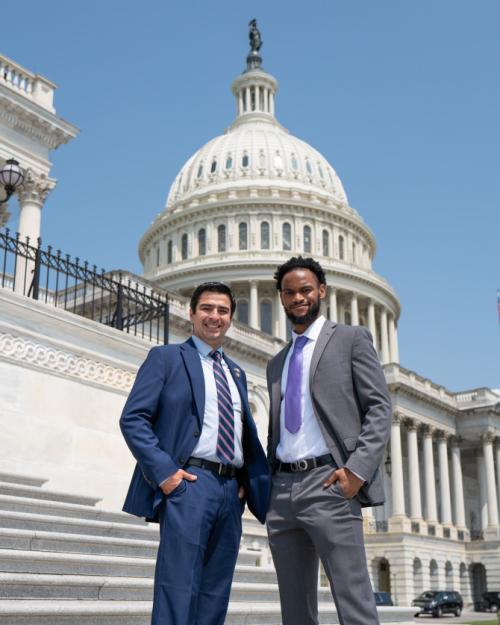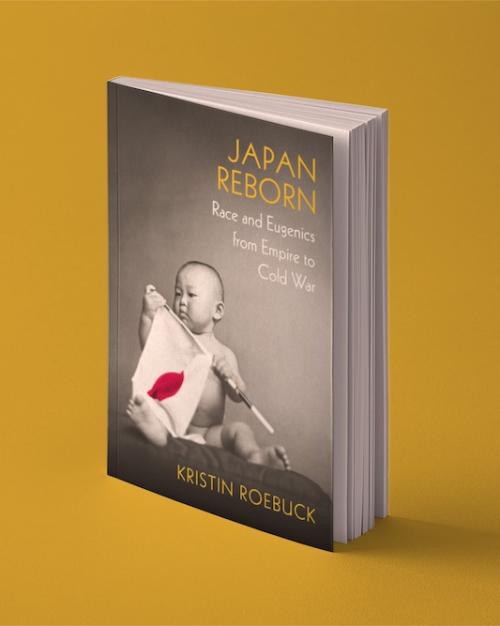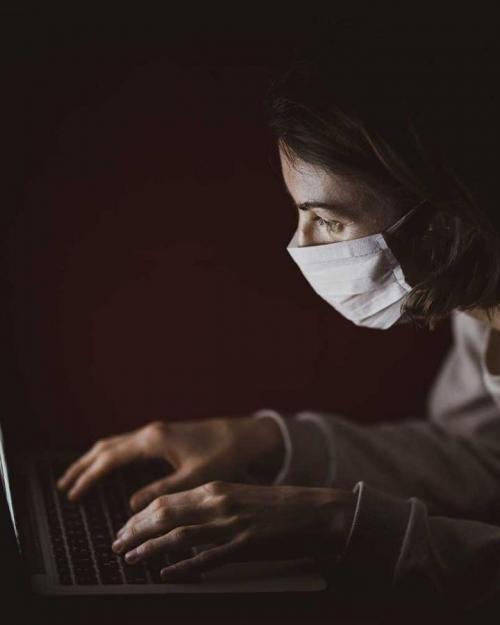The past year has seen a dramatic rise in existential fear, with people around the world thinking about death twice as often as before, according to new Cornell research.
Pandemic politics, not just the pandemic itself, cultivated a global sense of dread about health and death, causing stifling polarization while sidestepping deeper human questions about mortality and morality, said Uriel Abulof, an associate professor at Tel-Aviv University and Israel Institute Visiting Professor in the Department of Government in the College of Arts and Sciences.
“This collective existential anxiety has some benefits, not least the swift development of vaccines,” Abulof said. “But it has a darker side, too: a grim material, mental and moral toll.”
With Shirley Le Penne, a doctoral student in government, and Bonan Pu, Ph.D. ’20, Abulof co-authored “The Pandemic Politics of Existential Anxiety: Between Steadfast Resistance and Flexible Resilience,” published April 14 in the International Political Science Review.
Anxiety, both personal and political, was on the rise before the pandemic, the scholars said, particularly in the U.S., where, they wrote, institutional and popular culture have made anxiety “a key American emotional export.” That laid the groundwork for the deadly pandemic – or rather its politicization – to spread existential anxiety on a global scale, the researchers said.
While the coronavirus’ rapid spread offered objective reasons for fear, other modern pandemics and health crises – from the 1918 flu to AIDS to smoking – have spread as widely or been more lethal. But unlike earlier scares, people in 2020 were met with daily tallies of infections and deaths.
“Pandemic politics, leveraging media and academics,” they wrote, “both foregrounded death and framed it as fearful, cultivating mass existential anxiety and polarizing publics.”
Analyzing Google search trends and the News on the Web (NOW) corpus, a record of more than 12 billion words published by newspapers and magazines since 2004, the scholars quantified the doubling of “mortality salience,” or thinking about death, over the past year – not just in English, but worldwide. “The accent on death won the day or rather the year, 2020,” Le Penne said.
Recent pandemic fearmongering, Abulof said, includes reports that COVID-19 has slashed U.S. life expectancy by a year. A more accurate statistical reading, he said, would be that in the past year the average American lost 9.5 days from the normal life expectancy of 78.5 years, compared with just over a day for the average German or Swede. The average South African, by comparison, lost 84 days in 2007 alone due to AIDS, which causes death at a younger median age.
“We’re witnessing a peculiar dance of death denial,” Abulof said. “Given limited resources, should we favor physiological or psychological health, old or young age, the number of lives or years of life protected? COVID-19 invited us to make hard public choices, but we declined the invitation.”
No country has ignored the pandemic, the researchers said: Masks, social distancing, isolation, economic lockdowns and school closures have been employed most everywhere, according to a “stringency index” produced by the Oxford COVID-19 Government Response Tracker.
Drawing upon psychological theories and “The Oak and the Reed,” Aesop’s fable about weathering a storm, the scholars created a model scoring nations’ responses to the perceived mortal threat. On a spectrum of ideal types from steadfast resistance (the oak) to flexible resilience (the reed), China and Israel emerge as oaks, having employed the harshest countermeasures and at times warlike rhetoric. Sweden and Germany, which shifted policies in response to case totals and evolving scientific guidance, are reeds. The United States is a hybrid, with more liberal or conservative states taking different approaches.
Analyzing the stringency tracker and COVID-19 cases and deaths reported in 2020 by the Center for Systems Science and Engineering at Johns Hopkins University, the researchers found “oakier” countries have limited deaths somewhat better. But they concluded that on average globally, the strictness or laxness of policies “hardly affects COVID-related cases/deaths.”
“In the past year, we have been obsessing about safety,” Le Penne said, “thinking more about the dangers of dying – forgetting we will all die no matter what – than about how we should live, and what we are living for.”
Well before the pandemic, the opioid crisis led to what have been called “deaths of despair,” the scholars noted. Now, they said, in addition to economic hardship, reported depression, anxiety, stress, suicide and substance abuse grew exponentially, not least in the U.S.
“The public denial of death makes for a political flight from freedom,” Abulof said. “Science helps us understand, but can never resolve, our moral dilemmas. In this ‘fear year,’ we have not engaged these public dilemmas enough, impairing millions of lives, worldwide.”
Abulof and Le Penne this summer will discuss pandemic politics, among other topics, in their online course “What Makes us Human? An Existential Journey amidst Crisis” (GOVT 3686).




